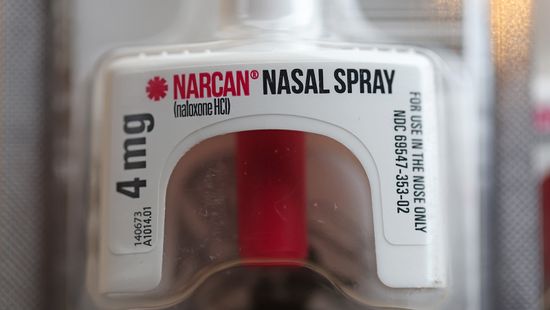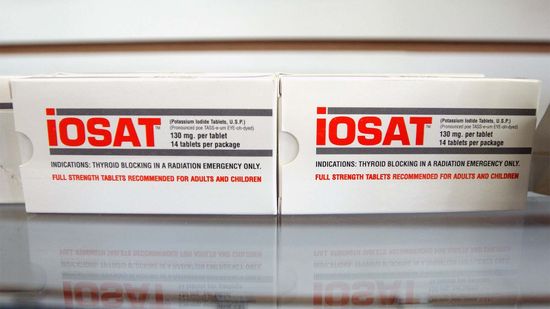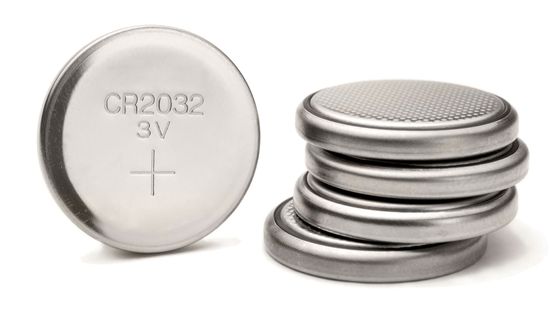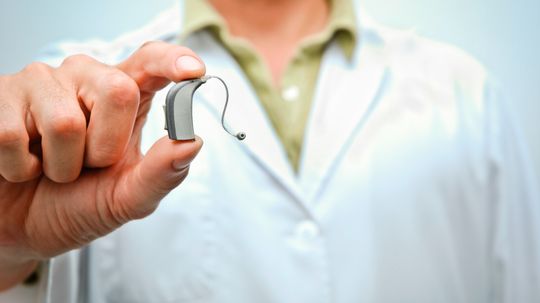Medicine
Medicine has to do with diseases and conditions that affect the entire body. In this section, learn about testing and treatment plans including the medicines used to prevent and treat a range of diseases and conditions.

Is Your Hospital Diverting Ambulances Because of COVID-19?

How Ambulances Work

Can You Go to the ER Without Health Insurance?

Womanikin: Overcoming the Stigma of Breasts and CPR

Women Less Likely to Receive CPR in Public, Study Finds

Should you use ice or heat to treat an injury?

Mark Cuban Wants to Solve the U.S. Prescription Drug Price Crisis

Epidemiologists Are the 'Disease Detectives' Protecting Public Health

Should Doctors Have to Pay Patients for Running Late?

Thalidomide: How a Miracle Medication Became a Global Tragedy

FDA Approves OTC Narcan Nasal Spray for Opioid Overdose

Why Are Potassium Iodide Pills Selling Like Crazy?

Who's the Most Powerful Doctor in the World? 5 Top Contenders

10 Types of Drugs Used for Medicinal (and Illicit) Purposes

15 Types of Doctors With Different Specialties

Anesthesia Awareness: When You're 'Awake and Aware' During Surgery

Prehab Could Make Your Recovery From Surgery a Bit Easier

You Need It Like a Hole in the Head: The Ancient Medical Art of Trepanation

Honey Can Help If Your Child Swallows a Button Battery

What Is the Rarest Personality Type?

Veins, Needles, Yikes: What to Know Before Having Blood Drawn

Are Army medics and doctors on the front lines?

Can civilians become doctors in the U.S. Army?

Do Army doctors and medics carry weapons?
Learn More / Page 8
While your iPod may bring you hours of enjoyment it, could also cause health problems. Read our list of seven health problems for the modern age.
Doctors use slang terms to save time during their day to day operations. You'll find that some of the terms are quite humorous because of the way they describe the ailment. Find out what physicians are really saying when they use medical slang.
Plastic surgeries are becoming more and more common throughout the country. In 2005, more than 1.8 million cosmetic surgeries and 8.4 million invasive cosmetic procedures were performed.
Advertisement
Hearing aids -- small electronic devices that amplify sound -- can help restore many of the sounds that hearing-impaired people are missing. Find out how hearing aids work in this article.
Obesity is a leading cause of preventable death in the United States, but many people cannot lose enough weight through diet, exercise and medication. On average, how much weight can be lost through gastric bypass surgery?
In a July 2007 study, scientists detailed their use of gold nanoparticles to detect breast cancer. Nanoparticles may also form the basis of future cancer treatments.
Cholesterol tests have become fairly routine and painless, and they're an important step in maintaining your health. There are a number of tests your doctor might use. Learn what these tests are and what the results mean.
By Neil Stone
Advertisement
Radiation therapy for cancer is based on the idea of selective cell destruction, and it destroys cells using energy. As it turns out, protons release energy in a different way than X-rays do.
By Julia Layton
Insulin therapy is a lifesaver for those with type 1 diabetes. Learn the history of insulin, how it was first extracted, where it comes from, and which type is used today.
A company called Second Sight has received FDA approval to begin U.S. trials of a retinal implant system that gives blind people a limited degree of vision. Find out how the "bionic eye" will work.
By Julia Layton
High blood pressure is the leading cause of death among Americans. Fortunately, there are a number of blood pressure medications that can vastly reduce a patient's risk. Learn more about blood pressure medications.
By Alex Nechas
Advertisement
Following more than 200 reports of strange behavior in minors taking Tamiflu, including 15 deaths, the FDA has made an addition to the drug's warning label.
By Julia Layton
A recently FDA-approved rapid HIV test (one that doesn't have to be sent to a laboratory for processing) can use blood, serum or oral fluids with equal accuracy.
By Julia Layton
Prescription drug costs are out of control. But you, as a consumer, don't have to just sit back and pay them or, worse, forgo proper medical treatment. Learn how to pay less for prescription drugs.
Scientists have developed a new ultrasound transducer to stimulate the growth of teeth and fix asymmetric jaw bones. See how it works.
Advertisement
Dentists treat diseases, disorders, and malformations of the teeth, mouth, and jaws. In addition to providing routine dental care, dentists may specialize in such areas as orthodontia and periodontia. Learn more about what dentists do.
Surgeons use surgical operations to treat disease, injury, or deformity by going into the human body by way of incisions through the skin and muscles. Learn about what surgeons do.
OTC painkillers come with warnings that should be taken seriously. Learn about OTC painkillers warnings in this article.
Medications for the ears and the eyes range from antibiotics and steroids for ear infections to beta blockers and carbonic anhydrate inhibitors for glaucoma. Read more information about how ear and eye prescription drugs work.
Advertisement
Hormones are substances that are produced and secreted to stimulate and regulate body functions. Hormone medications mimic the effects of naturally produced hormones. Learn about hormone medications, including oral contraceptives and anti-inflammatory drugs.
Some antiviral prescription drugs can lessen the severity and cut the duration of the flu as well as prevent infection if you've been exposed. Tamiflu is one of the most commonly prescribed drugs. Learn how Tamiflu works, how you take it and whether
In addition to your family doctor, a medical specialist will make crucial decisions affecting your health. But sometimes it's difficult to determine the type of specialist you need. Learn important guidelines for choosing a specialist.
Medicare is a major effort on the part of the U. S. government to provide affordable health insurance for seniors over 65 and people with certain disabilities. But the program had a lot of twists and turns, as well as an alphabet soup of parts.
Advertisement
Most people never think about choosing a doctor until they need one in a hurry. If you're injured or suddenly become ill, finding a good doctor is a necessity. Learn how to make this decision.
Atrial fibrillation is a serious, but treatable heart disease characterized by arrhythmia. Learn about the many treatment options that relieve symptoms and prevent serious complications.



















